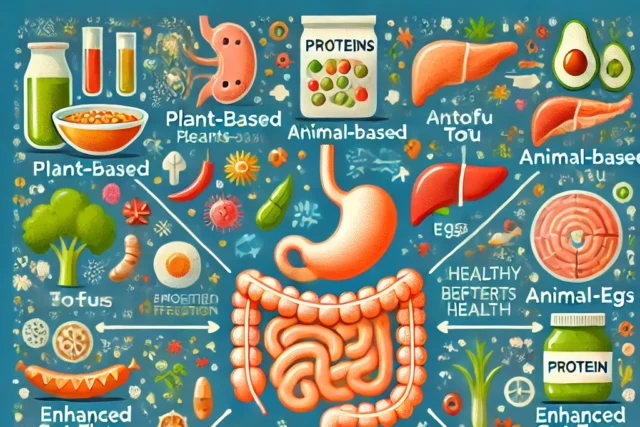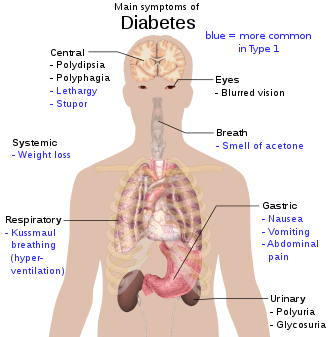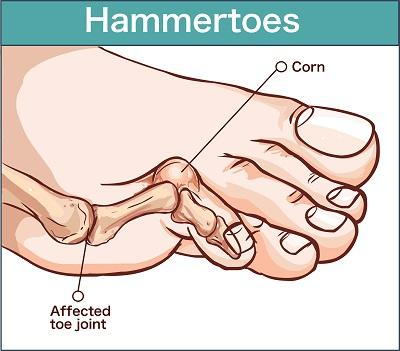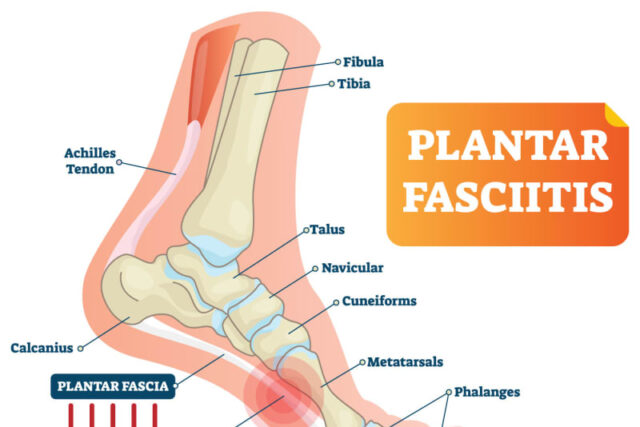“Discover Total Health multivitamin, tailored for active lifestyles. Our premium blend supports your wellness journey with essential nutrients for peak performance.”
Table of Contents
Introduction
In today’s fast-paced world, maintaining total health can feel like a full-time job. Whether you’re an athlete, a weekend warrior, or just someone who loves to stay active, taking care of your body is crucial. One of the simplest ways to support your active lifestyle is by incorporating multivitamins into your daily routine. But why are multivitamins so important, and how can they help you stay on top of your game? Let’s dive in.
Understanding Multivitamins
What Are Multivitamins?
Multivitamins are dietary supplements that contain a combination of vitamins, minerals, and sometimes other nutrients. They are designed to provide a balanced dose of essential nutrients that you might not get enough of from your diet alone.
Essential Nutrients in Multivitamins
Typical multivitamins include a variety of nutrients like vitamins A, C, D, E, K, and B-complex vitamins, as well as minerals such as calcium, magnesium, zinc, and iron. Each of these nutrients plays a vital role in maintaining your overall health and supporting your active lifestyle.
Benefits of Multivitamins for Active Individuals
1. Improved Energy Levels
- B Vitamins: Essential for converting food into energy. Active individuals often have higher energy demands, and adequate intake of B vitamins can help sustain energy levels throughout the day.
- Iron: Supports oxygen transport in the blood, crucial for maintaining stamina during physical activities.
2. Enhanced Muscle Function and Recovery
- Vitamin D: Important for muscle function and strength. It also aids in the absorption of calcium, which is critical for muscle contraction and bone health.
- Magnesium: Plays a role in muscle contraction and relaxation, helping to prevent cramps and support recovery after exercise.
3. Antioxidant Protection
- Vitamins C and E: Act as antioxidants, protecting the body from oxidative stress caused by intense physical activity. This helps in reducing muscle damage and speeding up recovery.
- Selenium and Zinc: Also have antioxidant properties that can aid in recovery and reduce inflammation.
4. Bone Health
- Calcium and Vitamin D: Essential for maintaining strong bones, reducing the risk of fractures and injuries, especially important for weight-bearing activities.
- Vitamin K: Works synergistically with calcium and vitamin D to support bone health.
5. Immune System Support
- Vitamins C, D, and E: Help bolster the immune system, reducing the likelihood of illness that can disrupt training and performance.
- Zinc: Plays a crucial role in maintaining a healthy immune response.
6. Cardiovascular Health
- Omega-3 Fatty Acids: Often included in multivitamin formulas, support heart health by reducing inflammation and promoting healthy cholesterol levels.
- Vitamin B12 and Folate: Help reduce homocysteine levels, which is linked to a lower risk of cardiovascular diseases.
7. Mental Focus and Mood
- B Vitamins: Essential for brain health and function, helping to improve focus and cognitive performance.
- Omega-3 Fatty Acids: Support brain health, potentially improving mood and reducing symptoms of depression and anxiety.
8. Hydration and Electrolyte Balance
- Electrolytes (Sodium, Potassium, Magnesium, Calcium): Crucial for maintaining fluid balance and preventing dehydration during intense physical activity.
9. Overall Nutrient Sufficiency
- General Health: Active individuals may have higher nutrient needs that can be difficult to meet through diet alone. Multivitamins help fill nutritional gaps, ensuring the body gets the necessary vitamins and minerals for optimal functioning.
Key Vitamins and Minerals for Active Lifestyles
1. Vitamin B Complex
- B1 (Thiamine): Helps convert carbohydrates into energy and is essential for muscle function.
- B2 (Riboflavin): Involved in energy production and the metabolism of fats and proteins.
- B3 (Niacin): Supports energy production and helps maintain healthy skin and nerves.
- B5 (Pantothenic Acid): Critical for the synthesis of coenzyme A, which is involved in energy metabolism.
- B6 (Pyridoxine): Plays a role in amino acid metabolism and the production of neurotransmitters.
- B7 (Biotin): Important for the metabolism of carbohydrates, fats, and proteins.
- B9 (Folate): Essential for DNA synthesis and repair, and works with B12 in the formation of red blood cells.
- B12 (Cobalamin): Vital for red blood cell production and nervous system health.
2. Vitamin C
- Role: Acts as an antioxidant, supports the immune system, and aids in the synthesis of collagen, which is important for healthy skin, tendons, and ligaments.
3. Vitamin D
- Role: Essential for calcium absorption, bone health, and muscle function. Also plays a role in immune system regulation.
4. Vitamin E
- Role: Functions as an antioxidant, protecting cells from oxidative damage caused by free radicals, which can be produced during intense physical activity.
5. Vitamin K
- Role: Important for blood clotting and works with vitamin D to support bone health.
6. Calcium
- Role: Crucial for bone health, muscle contraction, and nerve signaling.
7. Iron
- Role: Essential for the production of hemoglobin, which carries oxygen in the blood, and myoglobin, which carries oxygen in muscles. Important for energy production and reducing fatigue.
8. Magnesium
- Role: Involved in over 300 biochemical reactions in the body, including energy production, muscle function, and protein synthesis. Helps prevent muscle cramps and supports recovery.
9. Potassium
- Role: Maintains fluid and electrolyte balance, supports muscle contractions, and helps regulate blood pressure.
10. Zinc
- Role: Supports immune function, protein synthesis, and muscle repair. Acts as an antioxidant and is important for wound healing.
11. Selenium
- Role: Acts as an antioxidant and supports immune function. Important for thyroid health.
12. Omega-3 Fatty Acids
- Role: Support heart health, reduce inflammation, and are important for brain function. Often included in multivitamins or taken as a separate supplement.
How to Incorporate Multivitamins into Your Routine
1. Choose the Right Multivitamin
- Assess Your Needs: Consider your age, gender, activity level, and any specific health concerns. There are multivitamins tailored for different groups, such as men, women, seniors, and athletes.
- Quality Matters: Look for high-quality brands with good reviews and certifications from third-party organizations to ensure purity and potency.
2. Read the Label
- Dosage Instructions: Follow the recommended dosage on the label. Avoid taking more than the suggested amount, as excessive intake of certain vitamins and minerals can be harmful.
- Ingredients List: Check for the inclusion of essential nutrients you need and ensure it doesn’t contain any allergens or unnecessary additives.
3. Set a Routine
- Consistency: Take your multivitamin at the same time every day to establish a habit. Many people find it easiest to take them with breakfast.
- With Food: Taking multivitamins with a meal can improve absorption and reduce the likelihood of stomach upset.
4. Use Reminders
- Set Alarms: Use your phone or a watch to set a daily reminder to take your multivitamin.
- Pill Organizers: Weekly pill organizers can help you keep track of your daily intake and ensure you don’t miss a dose.
5. Combine with Other Supplements Carefully
- Avoid Overlaps: If you’re taking other supplements (e.g., protein powders, individual vitamins), ensure you’re not exceeding the recommended daily allowances.
- Consult a Professional: Speak with a healthcare provider or a nutritionist to tailor your supplement regimen to your specific needs and to avoid potential interactions.
6. Monitor Your Health
- Track Benefits: Keep a journal of any changes in your energy levels, performance, and overall health after starting multivitamins.
- Regular Check-Ups: Have regular check-ups with your healthcare provider to monitor your nutrient levels and adjust your intake as necessary.
7. Be Patient
- Give It Time: It may take a few weeks to notice the benefits of taking multivitamins. Be patient and consistent with your routine.
Practical Tips
- Hydration: Drink plenty of water throughout the day, as some vitamins, like B and C, are water-soluble and require adequate hydration for optimal absorption.
- Balanced Diet: Multivitamins should complement a balanced diet, not replace it. Aim to get most of your nutrients from whole foods, using multivitamins to fill in any gaps.
- Stay Informed: Keep up-to-date with new research and guidelines on vitamins and supplements to ensure you’re getting the best possible benefits.
Common Myths About Multivitamins
Myth 1: Multivitamins Can Replace a Balanced Diet
Truth: Multivitamins are designed to supplement a diet, not replace it. They can help fill nutritional gaps but should not be relied upon as the sole source of nutrients. Whole foods provide essential fibers, phytonutrients, and antioxidants that multivitamins cannot replicate.
Myth 2: All Multivitamins Are the Same
Truth: Not all multivitamins are created equal. Quality, ingredient sourcing, and formulations vary between brands. It’s important to choose high-quality multivitamins that are tailored to your specific needs and to look for products with third-party testing and certifications.
Myth 3: You Can’t Overdose on Multivitamins
Truth: It is possible to consume too much of certain vitamins and minerals, especially fat-soluble ones like vitamins A, D, E, and K, which can accumulate in the body. Overconsumption can lead to toxicity and adverse health effects. Always adhere to the recommended dosage.
Myth 4: Multivitamins Give Immediate Energy Boosts
Truth: Multivitamins are not stimulants and do not provide an immediate energy boost. They support overall health and energy metabolism, but their effects are usually seen over time with consistent use, rather than instantly.
Myth 5: Taking More Multivitamins Means Better Health
Truth: More is not always better. Taking excessive amounts of vitamins and minerals can be harmful and may interfere with the absorption of other essential nutrients. It’s important to take the appropriate amount as per individual needs and professional advice.
Myth 6: Multivitamins Are Only for the Elderly or Sick
Truth: While older adults and those with specific health conditions may benefit from multivitamins, they can be beneficial for people of all ages, especially those with active lifestyles, restrictive diets, or increased nutrient needs.
Myth 7: Natural Vitamins Are Always Better Than Synthetic Ones
Truth: The body often does not distinguish between natural and synthetic vitamins, as long as they are chemically identical. What matters more is the bioavailability and how well the body can absorb and utilize the nutrients.
Myth 8: Multivitamins Can Cure Chronic Diseases
Truth: Multivitamins are not a cure for chronic diseases. They can support overall health and help manage deficiencies, but they are not a substitute for medical treatments or a cure for diseases like diabetes, heart disease, or cancer.
Myth 9: You Don’t Need Multivitamins if You Eat Healthily
Truth: Even with a healthy diet, some people may still have nutrient gaps due to factors like soil depletion, food processing, and individual absorption issues. Multivitamins can help ensure adequate nutrient intake.
Myth 10: Multivitamins Are Just Expensive Placebos
Truth: High-quality multivitamins can provide tangible health benefits, especially for those with specific deficiencies or higher nutrient needs. The key is to choose reputable brands and formulations that are backed by research.
Potential Side Effects and Precautions
Potential Side Effects
- Digestive Issues
- Symptoms: Nausea, stomach cramps, diarrhea, or constipation.
- Causes: Often due to high doses of certain minerals like iron or magnesium.
- Allergic Reactions
- Symptoms: Rash, itching, swelling, dizziness, or difficulty breathing.
- Causes: Sensitivity to specific ingredients or additives in the multivitamin.
- Overdose Toxicity
- Symptoms: Headache, fatigue, muscle weakness, and in severe cases, organ damage.
- Causes: Excessive intake of fat-soluble vitamins (A, D, E, K) or minerals like iron and calcium.
- Interactions with Medications
- Symptoms: Vary depending on the interaction but can include reduced efficacy of medications or increased risk of side effects.
- Causes: Some vitamins and minerals can interact with prescription drugs (e.g., vitamin K with blood thinners).
- Metallic Taste
- Symptoms: Unpleasant metallic taste in the mouth.
- Causes: Commonly caused by iron or zinc supplements.
- Hypervitaminosis
- Symptoms: Vary depending on the vitamin but can include nerve damage (B6), liver damage (A), or hypercalcemia (D).
- Causes: Chronic excessive intake of vitamins.
Precautions
- Consult with a Healthcare Provider
- Before starting any new supplement regimen, discuss with your doctor, especially if you have underlying health conditions or are taking other medications.
- Read Labels Carefully
- Check for potential allergens and understand the recommended dosage. Be cautious of multivitamins with excessively high doses of certain nutrients.
- Start with Lower Doses
- If you’re new to multivitamins, start with a lower dose to see how your body reacts and gradually increase if necessary.
- Take with Food
- Taking multivitamins with a meal can help improve absorption and reduce the likelihood of stomach upset.
- Monitor Your Body’s Response
- Pay attention to any adverse reactions or changes in how you feel after starting a multivitamin. Discontinue use and consult a healthcare professional if you experience severe side effects.
- Store Properly
- Keep multivitamins in a cool, dry place away from direct sunlight and out of reach of children.
- Avoid Duplication
- Be mindful of other supplements or fortified foods you consume to avoid duplicating nutrients, which can lead to overdose.
- Regular Check-ups
- Periodic blood tests can help monitor your nutrient levels and adjust your supplement intake as needed.
Real-Life Success Stories
1. Enhanced Energy and Vitality
Story: Sarah, a busy professional and mother, struggled with low energy levels despite maintaining a healthy diet. After starting a high-quality multivitamin recommended by her doctor, she noticed a significant improvement in her energy and overall vitality. She was able to keep up with her hectic schedule more easily and felt less fatigued throughout the day.
2. Improved Athletic Performance
Story: John, an amateur athlete training for a marathon, incorporated a multivitamin into his daily routine to support his rigorous training regimen. Alongside a balanced diet, the multivitamin helped ensure he received essential nutrients for muscle function and recovery. John reported faster recovery times after long runs and noticed improvements in his endurance and overall performance.
3. Better Immune Function
Story: Maria, who often caught colds easily, started taking a multivitamin containing vitamin C and zinc during the winter months. She found that she was less susceptible to illnesses and experienced fewer sick days compared to previous years. The multivitamin helped strengthen her immune system, allowing her to stay healthier and more productive.
4. Management of Nutritional Deficiencies
Story: Michael, diagnosed with iron deficiency anemia, struggled with fatigue and weakness. In addition to prescribed iron supplements, his doctor recommended a multivitamin containing vitamin C to enhance iron absorption. With consistent use, Michael’s iron levels stabilized, and he experienced noticeable improvements in his energy levels and overall well-being.
5. Support for Bone Health
Story: Emily, approaching menopause, became concerned about her bone health and osteoporosis risk. She started taking a multivitamin with calcium, vitamin D, and vitamin K to support bone density. Combined with regular exercise, Emily’s bone health improved, and she felt more confident about maintaining strong bones as she aged.
Conclusion
Incorporating a multivitamin into your daily routine can be a game-changer for anyone with an active lifestyle. From boosting energy levels to supporting muscle recovery and enhancing immune function, the benefits are clear. However, it’s essential to choose the right multivitamin for your needs and consult with a healthcare provider to ensure you’re on the right track. Remember, a multivitamin is a supplement, not a substitute for a healthy diet. Stay active, stay healthy, and let multivitamins be your secret weapon for total health.
Frequently Asked Questions (FAQs)
Can I take multivitamins with other supplements?
Yes, but it’s important to ensure there are no overlapping nutrients that could lead to excessive intake. Consult your healthcare provider for personalized advice.
How long does it take to notice the benefits of multivitamins?
It can take a few weeks to a few months to notice the full benefits, as your body adjusts to the additional nutrients.
Are multivitamins safe for children?
Yes, but children’s multivitamins are formulated differently than adult versions. Always choose a product designed for their age group and consult a pediatrician.
Can multivitamins help with weight loss?
While they won’t directly cause weight loss, ensuring you have adequate nutrition can support overall health and energy levels, which can aid in weight management efforts.
Do athletes need more vitamins and minerals than non-athletes?
Athletes often have higher nutritional needs due to increased physical activity. A tailored multivitamin can help meet these needs and support optimal performance and recovery.












I appreciate how you broke down this complex topic into manageable pieces. Your clear explanations and real-life examples made it so much easier to understand.